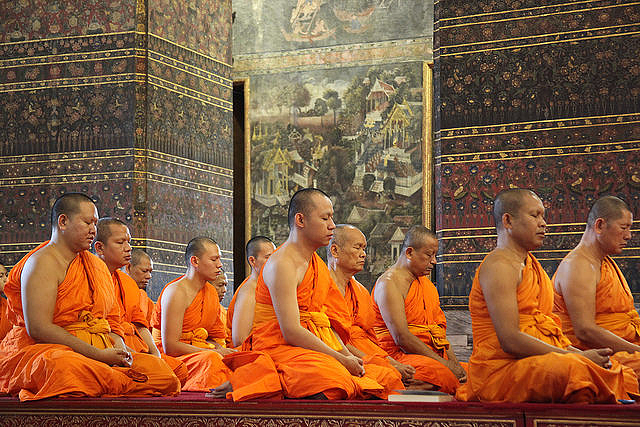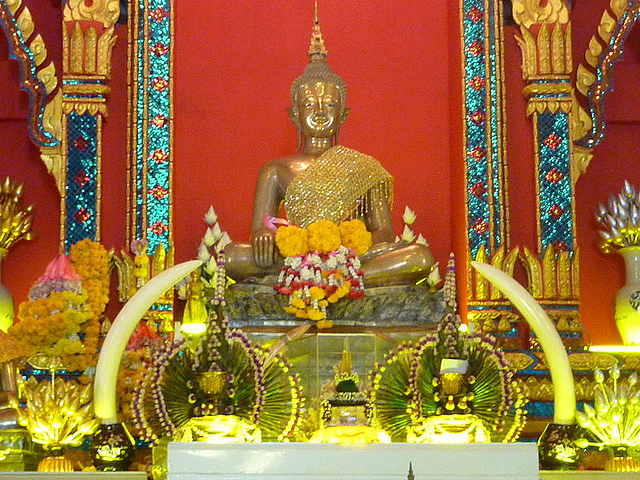The Buddhist monks in rural Thailand have a serious problem: they are gaining too much weight. According to a news report by AFP on November 22, the problem is that they are gifted with too much fatty and sugary foods by well-meaning Rural Thai. Their weight, and their health, are suffering.

The journalist writing for Agence France-Presse interviewed Pipit Sarakitwinon, a monk who says he is trying to do better. His weight was up to 180 kg (almost 400 lb.) but he has been trying to eat less and exercise more. He walks around his temple and does arm exercises every day in response to a health campaign that Buddhist leaders have encouraged their clergy to embrace. He has lost 30 kg. (66 lb.) so far this year since he started eating smaller portions and watching his weight. At the time he embarked on his diet, the 63-year-old monk said he could barely walk 100 meters before getting tired.
The Thai people, seeking to gain merit by giving alms to the clergy, often shower them with foods that are unhealthy—sodas, sugary sweets, heavy curries. They may earn merit with their gifts, but their generosity endangers the health of the recipients. The monks are suffering from knee problems from their weight, plus they face such dangers as hypertension and diabetes.
The Thai have high rates of obesity—among the highest in Asia—and the monks are at the peak of the curve. According to a study done in 2016 by members of the Allied Health Sciences faculty at Chulalongkorn University, Bangkok, 48 percent of Thai monks are obese and 42 percent suffer from high blood pressure.
While Buddhist leaders are quite aware of the problem and have issued guidelines to their clergy to try and get them to make healthy diet and exercise choices—in order to effectively deliver Buddha’s teachings—the monks do face a fundamental problem. They have a hard time refusing the food offerings from devoted Thai.
Phra Rajvoramuni, an official at a temple in Bangkok, urges monks to exercise by doing such things as sweeping the temple grounds every morning, doing walking meditations, and cleaning the temple. He also recommends that they get regular, basic medical check-ups. He doesn’t deny the problem of not accepting gifts from the faithful. “According to Lord Buddha’s teaching, whatever they offer, we have to accept. We can’t deny, we can’t reject,” he says.

The abbot of the Wat Pho Chai temple in Nong Khai Province of Rural Thailand, Phra Bhavana Dhamakosit, told the reporter that the temple began doing medical check-ups of their monks three years ago. One of the problems officials face is that the monks often move about from one temple to another, so it is hard to get them to persist in getting their check-ups.
Although the guidelines suggest that the monks should make healthy choices, the abbot also admitted the difficulty of putting too much pressure on the faithful. It is better to suggest to the monks that they abstain from eating unhealthy foods.